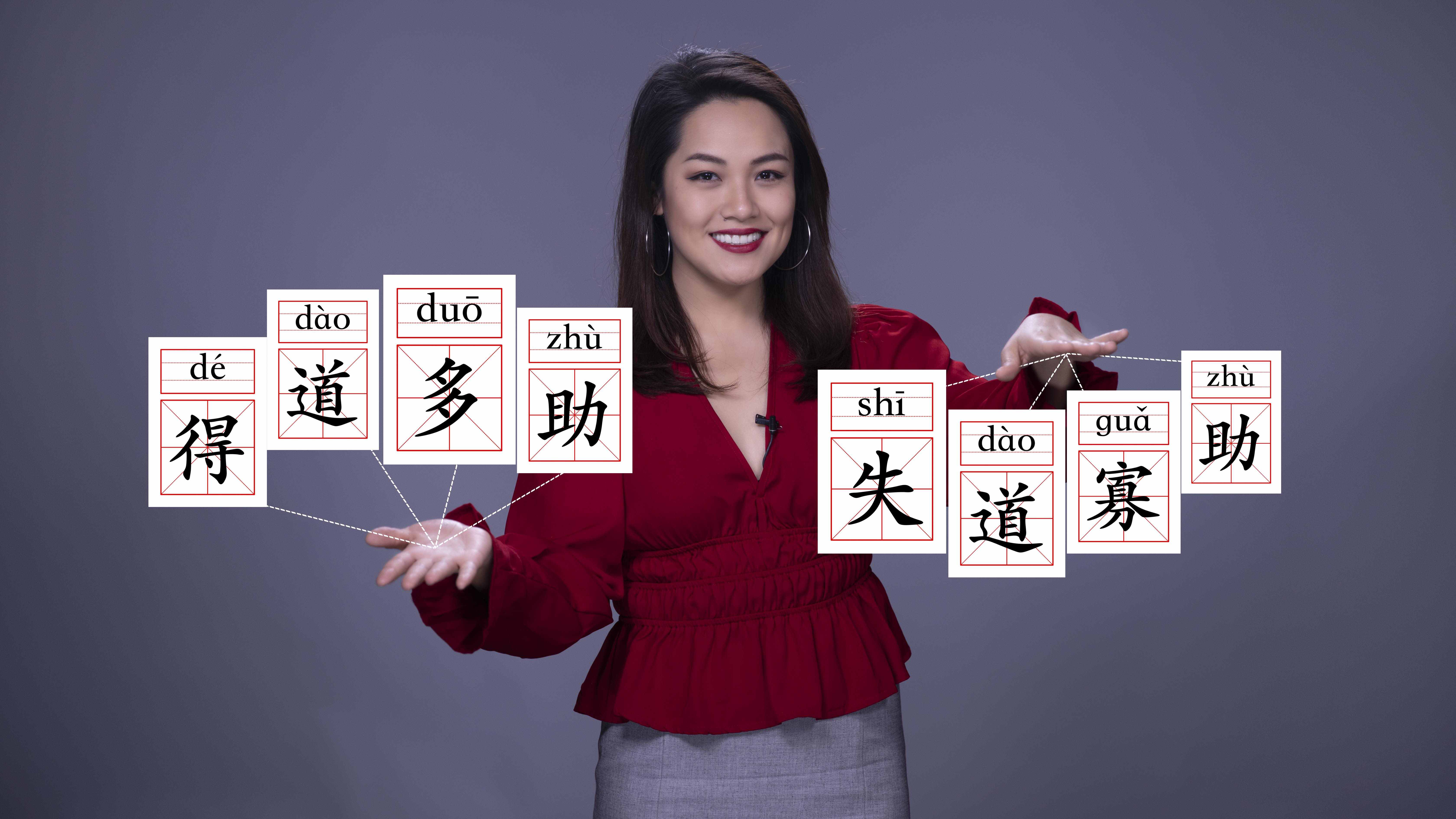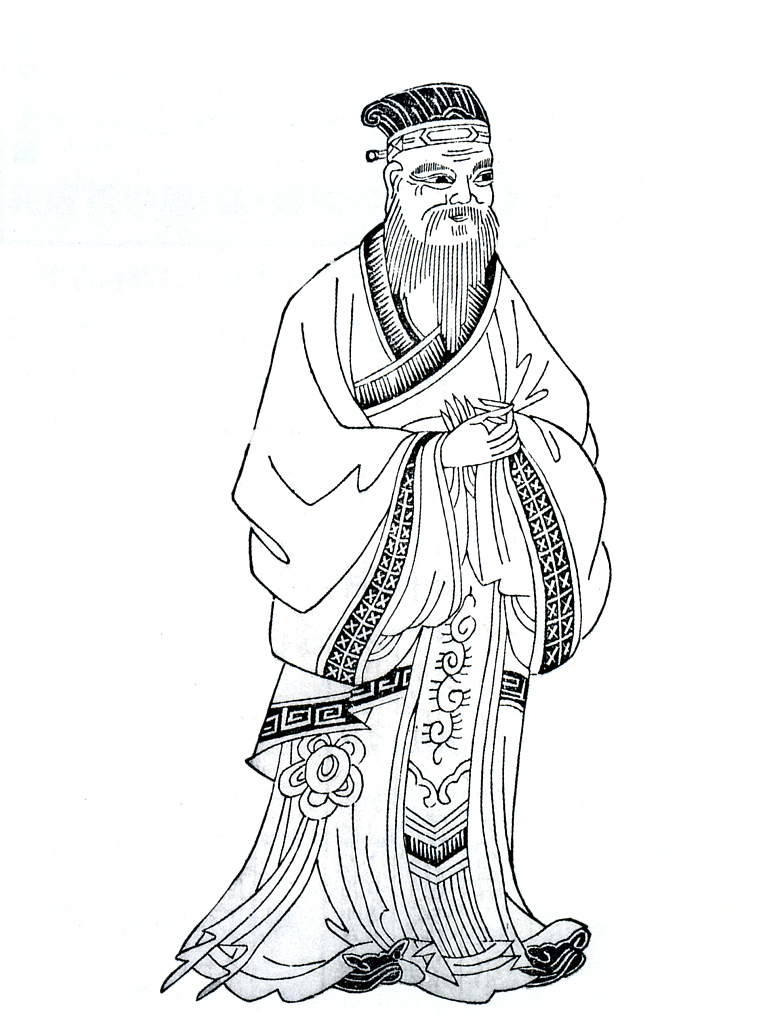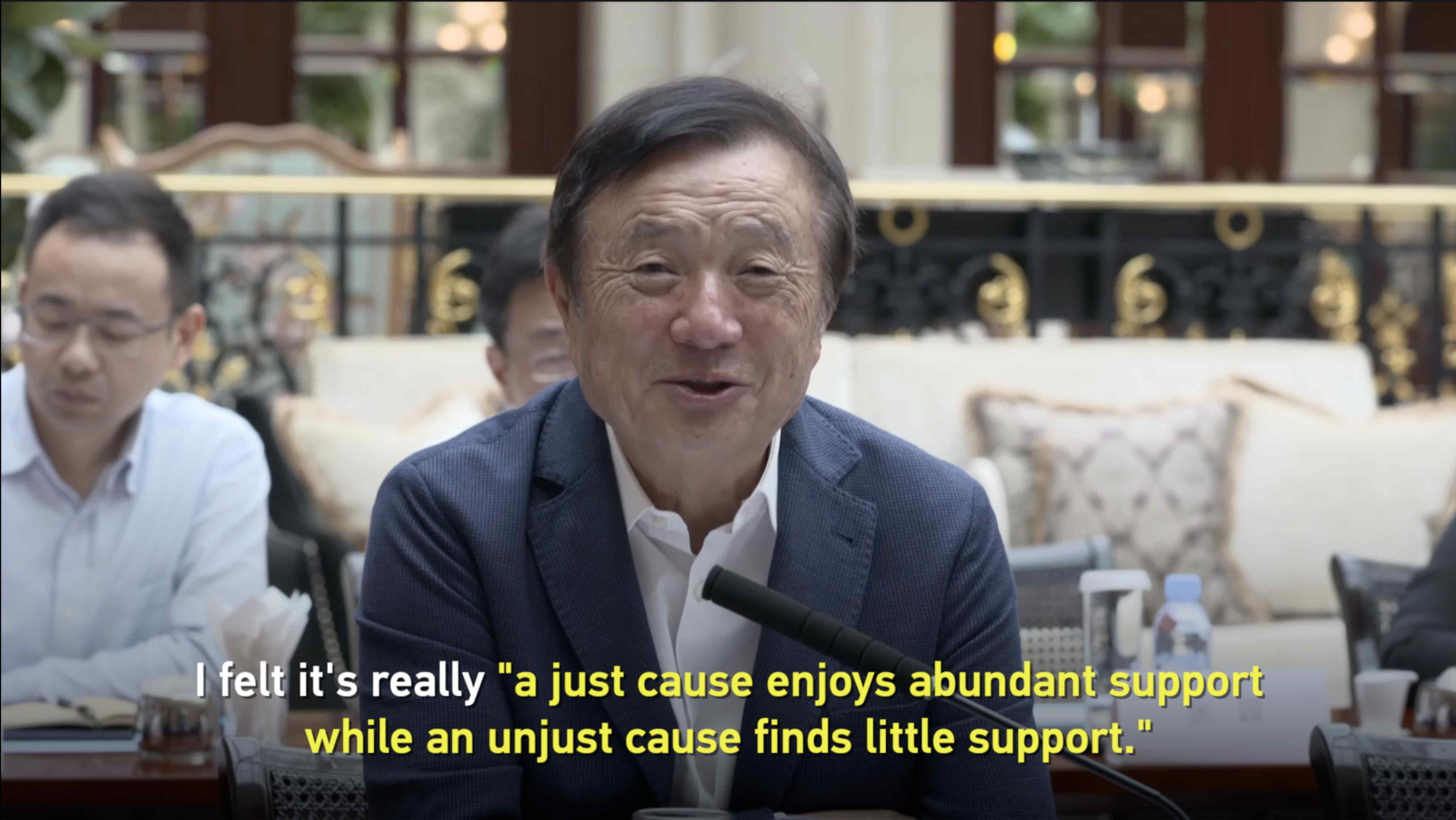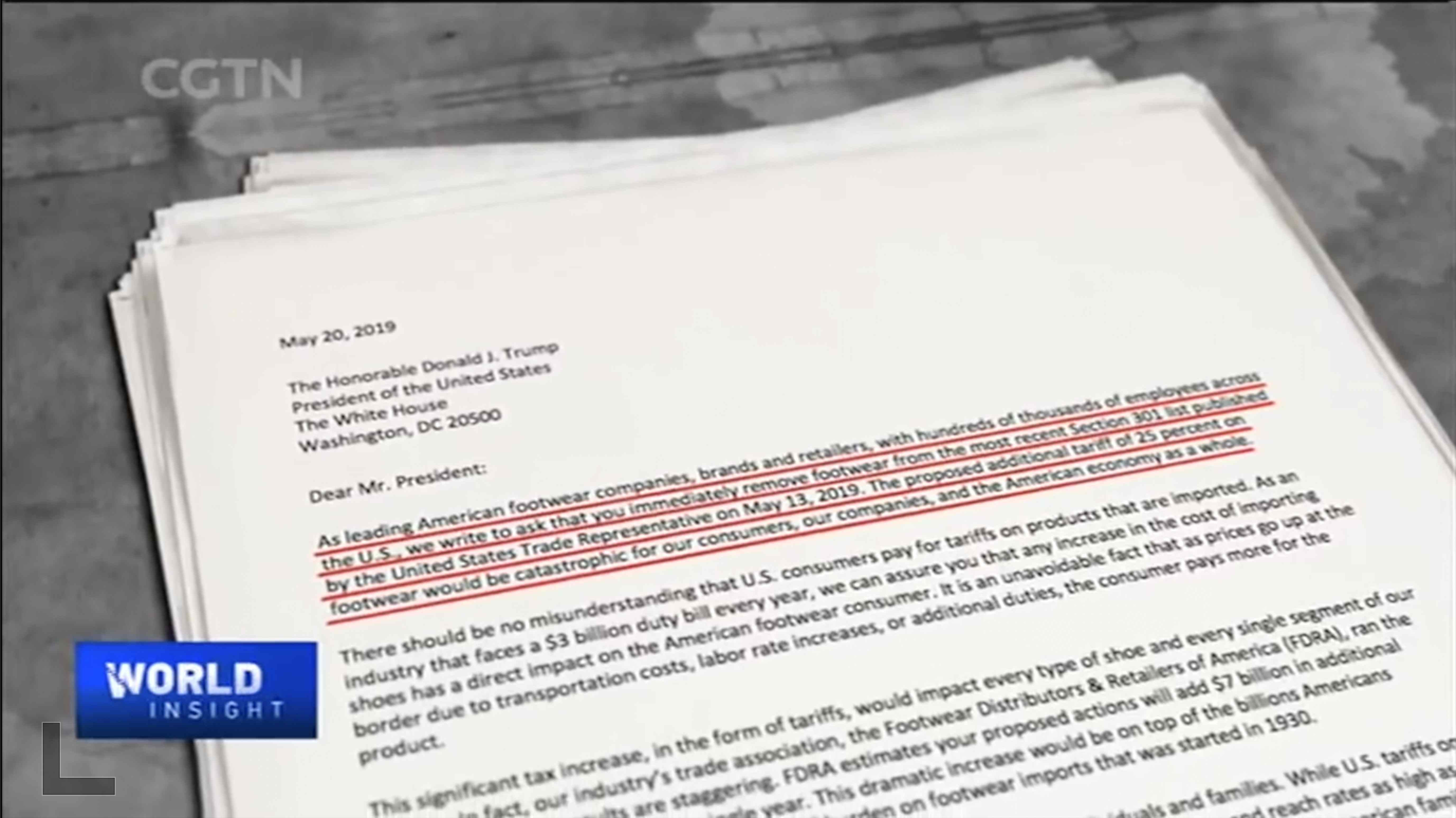
Culture China
19:05, 25-May-2019
Learning Chinese Ep.4: A phrase to describe the situation of the escalating trade war
By Li Jingjing and Qi Jianqiang
03:45

Welcome back to "Let’s Learn Some Chinese."
We believe it's always helpful to understand more about the culture behind the words when learning another language, so in this series, we try to bring you some phrases that reveal more about the ideology of the Chinese people.
Today's phrase is:
得道多助, 失道寡助 dé dào duō zhù,shī dào guǎ zhù
It means, "A just cause enjoys abundant support, while an unjust cause finds little support."
This snippet of wisdom is from ancient Chinese philosopher Mengzi, also known as Mencius (372-289 BC). Considered the second sage after Confucius, he was known for his philosophy "policy of benevolence."

A sketch depicting Mengzi./VCG Photo
A sketch depicting Mengzi./VCG Photo
This phrase was recorded in a book that shares his name, which is recorded his and his students' views on politics, philosophy and ethics.
He came up it when trying to explain the strategy to win. His other famous sayings include, "the time isn't as important as the terrain, but the terrain isn't as important as unity with the people."
What he was trying to say was "people won’t settle just because you set a border, the country won’t be safe just because you chose an advantageous location, the key is being benevolent and win the unity of people."
And how to win the unity of the people? He sums it up with the phrase that we are teaching today, "得道多助,失道寡助."
If you have a just cause, you win abundant support from people. If you have an unjust cause, you win little support.
How to use this phrase in modern days? There are perfect examples from recent hit topics.
A few days ago, Huawei's founder and executive Ren Zhengfei met the press and answered many questions concerning pressing issues. When talking about firms from the U.S., Ren said: "I am very grateful to U.S. enterprises. For these 30 years, the U.S. enterprises have grown with us. They made a lot of selfless contributions. Many people know that most of my consulting enterprises are in the U.S. Second, many U.S. device manufacturers gave us great support. It reflects the conscience of U.S. firms, especially in today's crisis. I was touched. I felt it really is 'a just cause enjoys abundant support while an unjust cause finds little support.'"

Huawei founder and executive Ren Zhengfei is meeting the press./CGTN Photo
Huawei founder and executive Ren Zhengfei is meeting the press./CGTN Photo
He used this phrase during the interview to describe the support that Huawei had received from enterprises in the United States.
This phrase could also be used to describe situations that Trumps' administrations are facing. His decision of raising tariffs on China's goods during the recent escalating trade war has backfired domestically. A few days ago, 173 companies from the U.S., including major shoemakers like Nike, Adidas, signed an open letter to Trump calling him to reconsider his decision as the "policy would be catastrophic for our consumers, our companies and the American economy as a whole."
So, as we explained, If you are involved in an unjust cause, you win little support.

A screenshot displaying the open letter from U.S. enterprises to President Donald Trump./CGTN Photo
A screenshot displaying the open letter from U.S. enterprises to President Donald Trump./CGTN Photo
Word by word
In this phrase, 道 can be translated as "justice."
This completed character 寡 means "few" or "little."
得道 means "have a just cause"
多助 means "gain lots of support"
失道 means "doesn't have a just cause"
寡助 means "little support"
And that's 得道多助,失道寡助 dé dào duō zhù,shī dào guǎ zhù
A just cause enjoys abundant support, while an unjust cause finds little support.
Alright, that's it for today's Let's Learn Some Chinese.
On-Camera Reporter: Li Jingjing
Scriptwriter: Li Jingjing
Filmed by Qi Jianqiang
Video Editor: Qi Jianqiang, Li Jingjing
Animation: Qi Jianqiang
Editor: John Goodrich
Chief Editor: Lin Dongwei
Producer: Wen Yaru
Supervisor: Pang Xinhua

SITEMAP
Copyright © 2018 CGTN. Beijing ICP prepared NO.16065310-3
Copyright © 2018 CGTN. Beijing ICP prepared NO.16065310-3